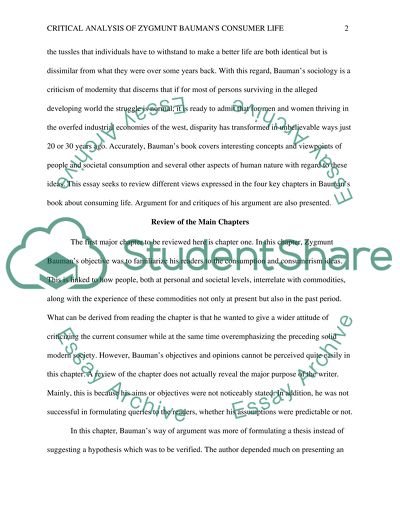Cite this document
(“Critical Analysis of Zygmunt Bauman's Consumer Life Assignment”, n.d.)
Retrieved from https://studentshare.org/sociology/1463315-critical-analysis-of-zygmunt-bauman-s-consumer
Retrieved from https://studentshare.org/sociology/1463315-critical-analysis-of-zygmunt-bauman-s-consumer
(Critical Analysis of Zygmunt Bauman'S Consumer Life Assignment)
https://studentshare.org/sociology/1463315-critical-analysis-of-zygmunt-bauman-s-consumer.
https://studentshare.org/sociology/1463315-critical-analysis-of-zygmunt-bauman-s-consumer.
“Critical Analysis of Zygmunt Bauman'S Consumer Life Assignment”, n.d. https://studentshare.org/sociology/1463315-critical-analysis-of-zygmunt-bauman-s-consumer.


